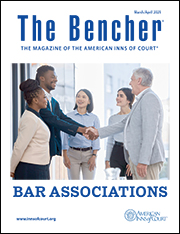
 Many state bar associations (as well as most lawyer ethics state regulatory authorities) have legal ethics hotlines that may be called by lawyers who could use some help working through an actual or potential ethics issue. The hotline might or might not be available only to members of the association.
Many state bar associations (as well as most lawyer ethics state regulatory authorities) have legal ethics hotlines that may be called by lawyers who could use some help working through an actual or potential ethics issue. The hotline might or might not be available only to members of the association.
The lawyer making such an inquiry should consider their confidentiality obligations to current and former clients. American Bar Association (ABA) Model Rule of Professional Conduct 1.6 Confidentiality of Information provides in part: “(b) A lawyer may reveal information relating to the representation of a client to the extent the lawyer reasonably believes necessary: … (4) to secure legal advice about the lawyer’s compliance with these Rules[.]” Comment [9] to Rule 1.6 states: “A lawyer’s confidentiality obligations do not preclude a lawyer from securing confidential legal advice about the lawyer’s personal responsibility to comply with these Rules. In most situations, disclosing information to secure such advice will be impliedly authorized for the lawyer to carry out the representation. Even when the disclosure is not impliedly authorized, paragraph (b)(4) permits such disclosure because of the importance of a lawyer’s compliance with the Rules of Professional Conduct.”
ABA Model Rule 1.9 Duties to Former Clients in turn states in part: “(c) A lawyer who has formerly represented a client in a matter or whose present or former firm has formerly represented a client in a matter shall not thereafter: … (2) reveal information relating to the representation except as these Rules would permit or require with respect to a client.” See also Comment [4] to Rule 1.6 regarding former clients. The ABA Model Rules have been adopted around the country, but sometimes with modifications. A lawyer needs to check the law of the applicable jurisdiction(s).
In my experience, when calling a state bar or regulatory authority legal ethics hotline, a lawyer normally can and should frame their inquiry in such a manner that the lawyer, the parties, and the situation are anonymized. The lawyer might or might not be asked to identify themselves. I have never been asked—although sometimes I have known the person taking the call and they might have recognized me.
The lawyer normally can describe the situation in a way that does not directly identify the lawyer or any parties or provide confidential client information or information from which there is reasonable likelihood that the lawyer’s or parties’ identities or confidential client information may be deduced or inferred. Comment [4] of Rule 1.6 states in part: “A lawyer’s use of a hypothetical to discuss issues relating to the representation is permissible so long as there is no reasonable likelihood that the listener will be able to ascertain the identity of the client or the situation involved.”
Keep in mind that Rule 1.6(b)(4) and Comment [9] refer specifically to “legal advice.” The hotline is not counsel to the calling lawyer. The person taking the call will not be giving “legal advice” in a technical sense. The hotline is likely to disclaim that it is giving a legal opinion or legal advice, although the hotline likely will state that the inquiry is confidential. If the lawyer needs to make a disclosure not otherwise permitted by Rule 1.6, then the lawyer may need to retain counsel within their own organization. (Whether and when the attorney-client privilege attaches to a lawyer who seeks “in-firm” legal advice is beyond the scope of this column.)
The ABA website provides a list of “Additional Legal Ethics and Professional Responsibility Resources.” The list includes approximately 26 state bar association legal ethics hotlines as well as other resources.